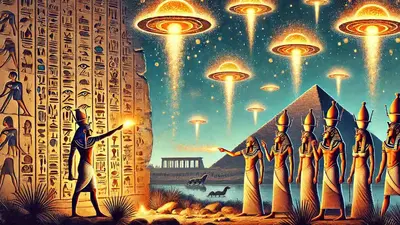
Remote Viewing: Courtney Brown and the Farsight Institute
Imagine being able to "see" things that are far away or hidden from view, just by using your mind. This might sound like something out of a superhero movie, but it's the real-life work of Courtney Brown.
Courtney Brown is a fascinating figure in the world of remote viewing, a practice where people use extrasensory perception (ESP) to get impressions or information about distant or unseen targets. It's like using your mind as a telescope!
Courtney didn't start out as a mind explorer. He began his career as a university professor, teaching at Emory University in Atlanta, Georgia. With a strong academic background, Courtney brought a sense of scholarly rigor to his work. But he had bigger dreams than just teaching in a classroom. He wanted to explore the mysteries of the universe and find out if people really could "see" with their minds.
Building a Vision: The Farsight Institute
With his dreams in mind, Courtney founded the Farsight Institute, a nonprofit research organization dedicated to studying and applying remote viewing. The institute doesn't aim to make money; instead, it's all about learning and discovery. Under Courtney's leadership, the Farsight Institute has taken on some pretty big projects, using remote viewing to look into significant mysteries and historical events. Imagine trying to solve ancient puzzles or uncovering secrets about extraterrestrials!
One of Courtney's boldest claims is that remote viewing can provide insights into extraterrestrial life. He has written books like "Cosmic Voyage" and "Cosmic Explorers," where he shares his findings about aliens visiting Earth. These books read like thrilling science fiction but are based on his research and remote viewing sessions. He even wrote "Remote Viewing: The Science and Theory of Nonphysical Perception" to explain the science behind this intriguing practice.
Controversies and Continuing Adventures
Not everyone is convinced about Courtney Brown's work. Many in the scientific community are skeptical, saying that remote viewing lacks solid empirical evidence and often feels like pseudoscience. Despite the critics, Courtney has built a strong following among those fascinated by paranormal and extrasensory phenomena.

Recommended

